It’s no understatement to say that live music is one of the most magical and transcendent experiences life can offer. We can easily recall Imogen Heap singing “Hide and Seek” acapella with nothing but a vocoder in Leeds, Mick Jagger strutting up the central gangway at Southampton Football Stadium with the opening chords of “Brown Sugar” ringing out. We’ve also had some special moments of zen from the stage as a performer. These can best be described as some kind of out-of-body experience that occurs when you get totally lost in the music. And yet there are certain concert etiquette rules that come with attending and performing live music.
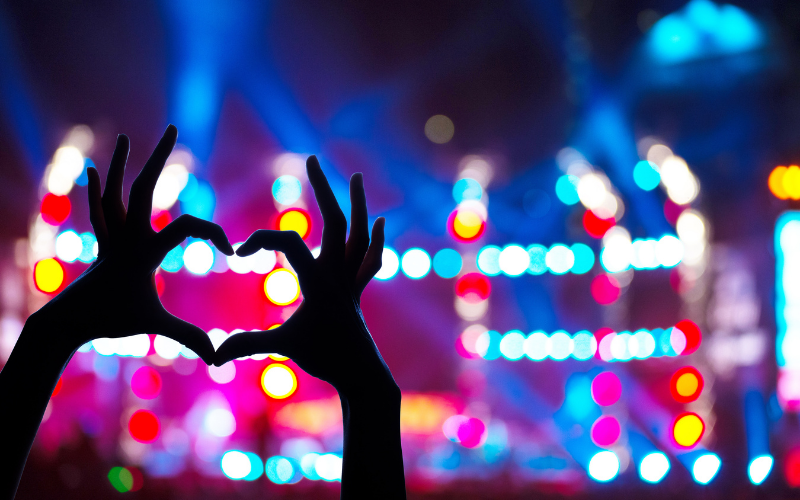
Interestingly, etiquette can change depending on the genre of music that you have gone to see. Or perhaps even the type of venue you are in. Maybe you are looking at attending your first live concerts or performing your first gigs.
Or perhaps you’re attending a new kind of live music experience or even if you’ve attended gigs for years and have always wondered why other gig-goers are constantly giving you the stink eye! This guide could be for you!
In this article, we’ll touch on what concert etiquette is as well as unpack our top 10 concert etiquette rules for both performers and concert-goers. Stay tuned until the very end so you don’t miss any key information!
What Is Concert Etiquette?
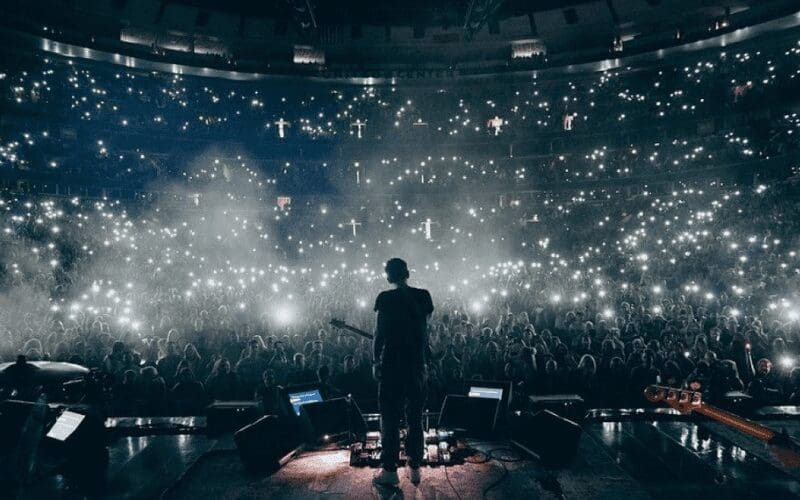
Put simply, concert etiquette is an often unspoken generally accepted way of behaving at a concert or live music event.
Why is concert etiquette important you ask? In some cases, concert etiquette is similar to table manners and in others, it’s just an established way of behaving at a concert.
But ultimately, concert etiquette is an unspoken social contract that all gig-goers agree to uphold with the honourable intention that everyone enjoys themselves and appreciates the music properly.
10 Concert Etiquette Rules For Performers
Now that we have established what concert etiquette is, let’s jump in and go through 10 rules of concert etiquette for performers.
1. Enjoy Yourself
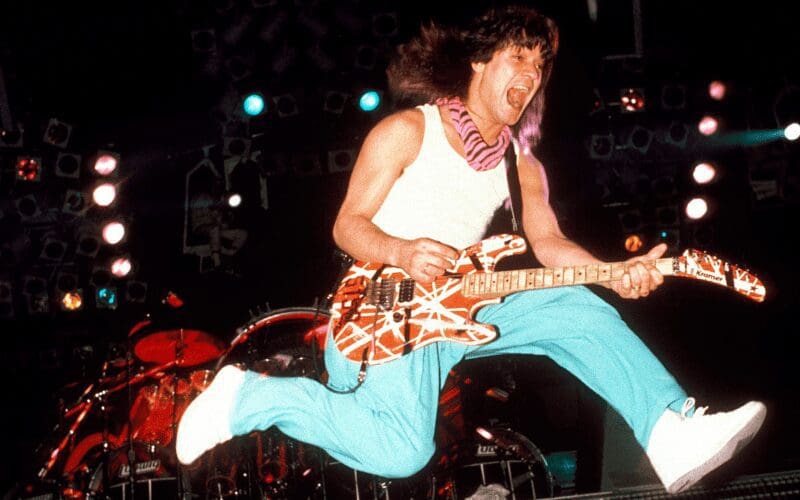
This might seem a little obvious, but having spent a lot of time touring around the UK and playing at gigs and festivals, we can honestly say that around 50% of bands spend most of their time staring straight at the floor or glowering at the audience.
If you’re Liam Gallagher perhaps this isn’t such a problem. But generally, we’ve found that the bands who look like they’re having fun tend to better inspire a crowd to have fun – and then everyone is happy!
2. Keep To Your Set Time
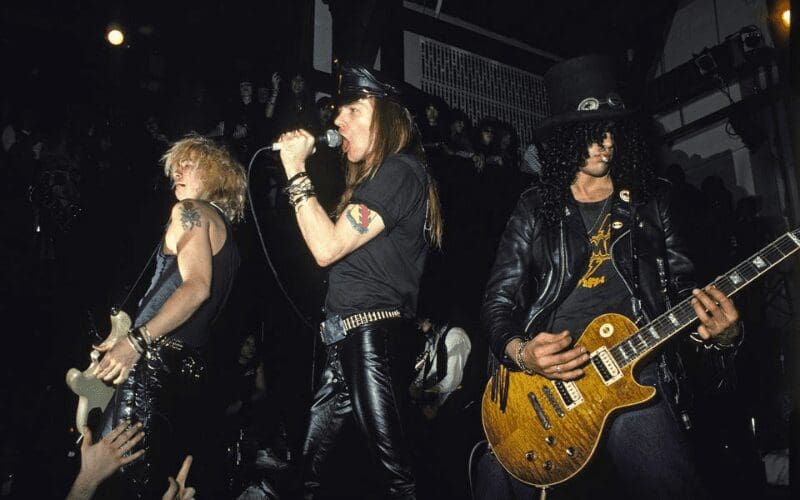
This is true for all performers in all genres and in all venues. For headliners, venues often have curfews and limits on when music needs to finish by. So you need to know exactly when the music needs to finish and time your set accordingly.
In many cases, there are fines for venues that exceed the limits so make sure you don’t exceed the slot given to you. In his book, Duff Mckagan of Guns N Roses talks about the troubles of repeatedly going on late and how their own fans began to turn against them because they kept them waiting.
At festivals, time is even more pressured and there are even more bands and gear flying around everywhere. Remember, if you are late on stage, your set doesn’t automatically get extended.
You still have to finish on time because if you run over, that’ll mean the band after you get their set cut. They will probably be pretty unhappy about it too, so best avoid it.
3. An Encore Is For The Headliner
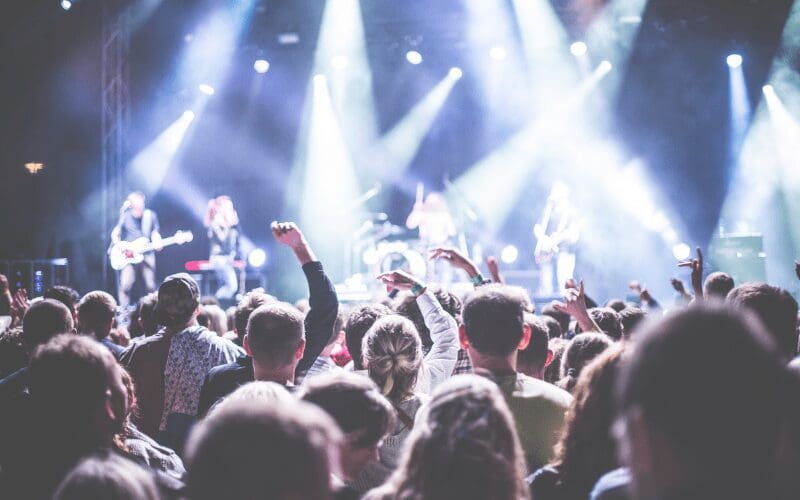
We’ve all been there at some point – a show in a small club, a bustling audience. You’re getting your gear ready to go on stage, you’re waiting in the wings, guitar in hand, psyching yourself up. And then the support band’s bass player’s nan shouts “Encore” as they finish their last song.
Remember, as a support band you are there to support – you play your set and give the next band their go. By playing that encore, you frustrate the headliners which might mean they’re reluctant to have you back.
Additionally, you might compromise the timings of the event (see the rule above) and you compromise the flow and integrity of the event.
4. Don’t Big-Time Anyone

Even if you have had some success – playing the big-deal card is rarely a nice colour on anyone. If you treat everyone involved in a gig with respect you will find that your gigs run a lot smoother.
Generally, people will be more willing to help you make sure you deliver a great gig.
5. Dress Right (Within Reason)
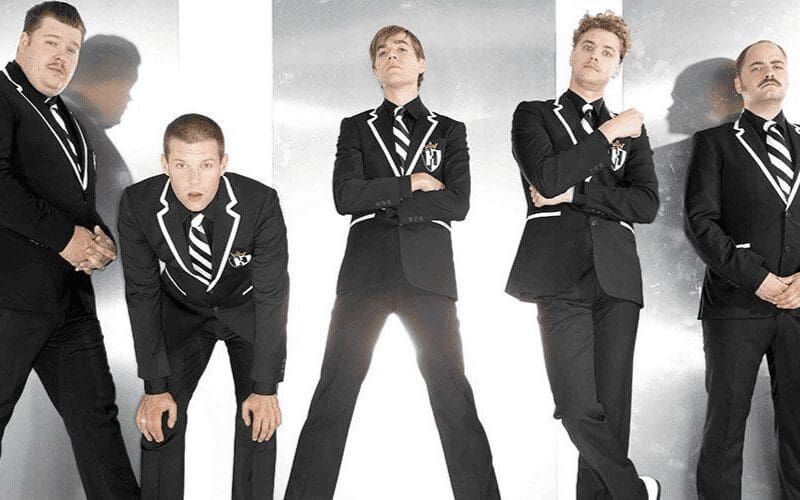
This one is a bit thorny – people should be able to wear what they like, right? Well, it depends.
If you’re in a rock band – wear what you like. You can go full-on flamboyant Elton John or a simple white vest and jeans like Freddie Mercury. The general advice is that a pop music act should dress very slightly better than their audience. But this is just a guide, of course.
That said, if you’re in The Hives and you turn up to a show wearing a cowboy hat and running trainers, you’re probably going to distract from the performance. Your fans will be nudging each other asking who the athletic cowboy is rather than enjoying the music and that’s crucial.
Similarly, if you’re playing in an orchestra or music theatre ensemble then you will likely have a dress code specific to the event. Similarly, if you’re backing a solo artist, they may have a desired look for their band and breaking that could be a problem.
An example of this is that Ozzy Osbourne once met with legendary guitar player Buckethead and offered him the gig, but only if he lost the bucket – ultimately Ozzy moved on and Buckethead potentially missed out.
So always keep to the dress code…. however!! Sticking two fingers to the establishment isn’t necessarily a bad thing! The legendary Pentangle guitar player John Renbourn shuffled into the ornate baroque concert hall in flip flops, casual pants and an old polo neck.
He sat down, lifted one leg over the other, and played the most beautiful acoustic guitar music we’d ever heard. We loved the fact that he broke the convention and wore what he wanted to but had the playing chops to know that what he wore didn’t matter.
Of course, not every performer can make these kinds of choices or statements so I guess the rule is stick to the dress code if there is one, and know when and how to break the rules.
6. Kit Sharing
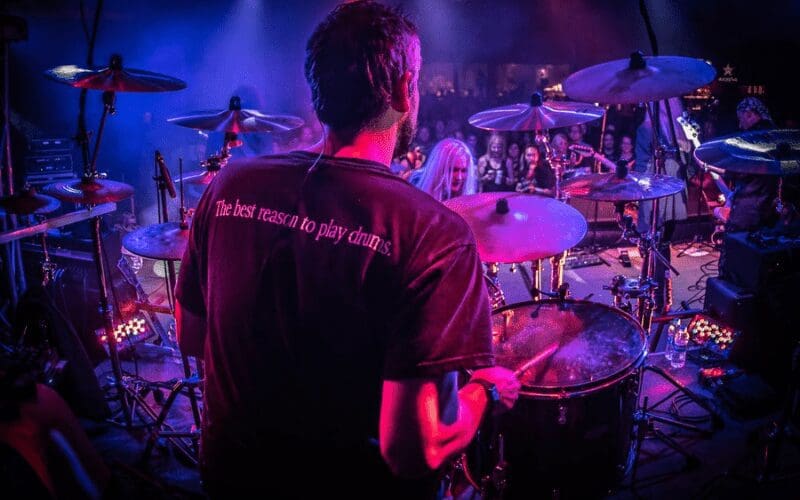
At lots of gigs and especially at festivals, there is often a kit share of some kind. Typically the festival or one of the bands will provide a drum kit minus ‘breakables’ (snare and cymbals) and a backline of some kind. This will usually be guitar and bass cabinets or combos.
If you are using shared equipment, treat it with respect. This includes running guitar amps way too loud, smashing the hell out of drum kits or swinging the soundman’s mics around Roger Daltrey style.
You want other bands, festivals, engineers, etc. to come away from your set thinking “what a great band and such a cool bunch”. So it is paramount you treat them and their gear with respect.
If you are loaning the equipment, it’s also important to understand that other bands may need to adjust it to a degree. The drummer might need to move some of the shells around, or the bass player may need a treble boost so that his slap bass comes through.
If you’ve made your gear available to share, share kindly because everyone is trying to put together the best show so be accommodating and help if your gear is being shared.
7. The Warm-Up
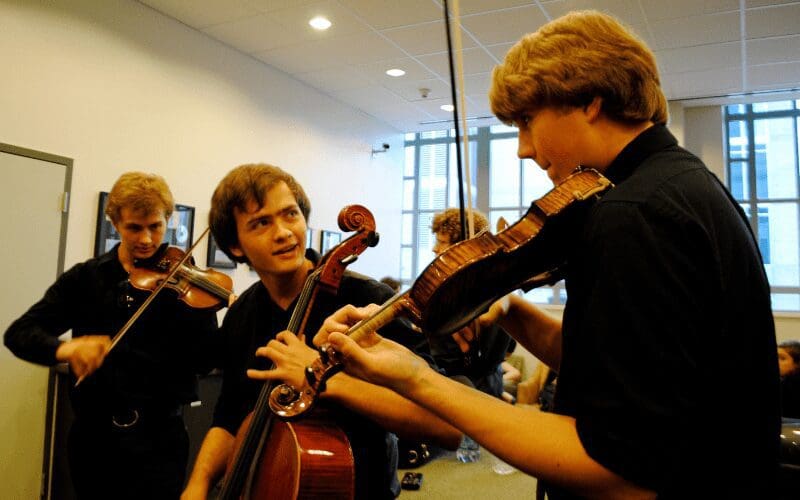
If you’re in an orchestra or classical ensemble, you might need to warm your instrument up before your performance. This is particularly true for instruments that tend to warm up as they are played.
Whether you warm up in a green room adjacent to the performance area or in the performance area itself. If the audience members might be able to hear the warm-up, the general etiquette is not to play anything in the warmup that you will play in the performance.
If you’re in a band, warm-ups should be done off-stage. When you get on stage, it should be the smallest of notes just to make sure that your signal is coming through properly.
8. Between Songs
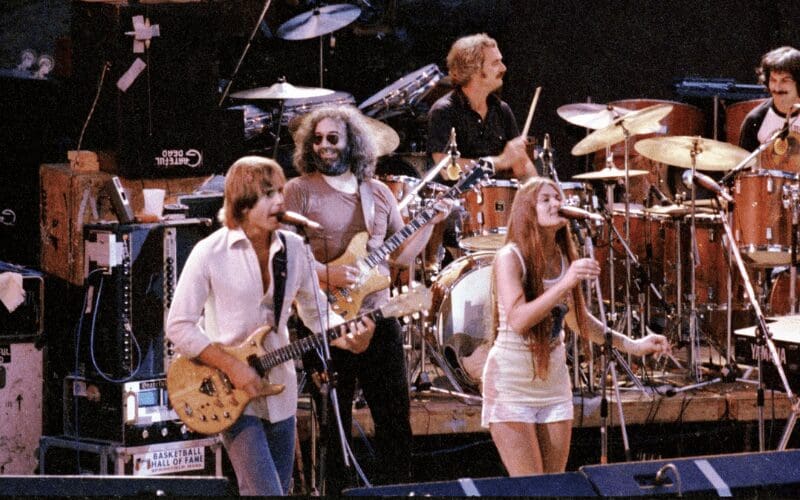
No one likes an awkward silence and for a band between songs there is a risk here; Especially if you have to kill a few seconds whilst a guitarist changes instrument or something similar.
In these situations it’s best to have a designated person in the band who does the talking. You don’t want to all be talking over one another as the audience just hears a garbled mess.
Similarly, if your singer is saying something to the audience between songs, give them the space to play.
9. Language For The Venue

This is another tricky one. Sometimes being told to watch your language can feel like you are being censored and your creative output is being messed with. It’s important to note that, as a musician, you’ll play all sorts of different gigs and the audiences at these gigs will be different.
Some festivals market themselves as family-friendly and you have to be able to adapt your set and language to that audience.
A friend of ours works in broadcasting and told us the story of how he was once involved with a live radio broadcast for Eminem. The rapper ran through the song he was about to perform a few times in order to make sure everyone was happy with the levels and then the radio station cut to the studio and his performance would be live.
In the soundcheck, Eminem performed the album cut of the track, swear words and all. The producer of the broadcast was a little worried that some of those words might come out on air. But when that red light went on and Eminem was live, he flawlessly shifted to the clean radio edit of the song.
The less headaches you cause for the team behind the scenes, the better your performances will be.
10. Remember What’s Important
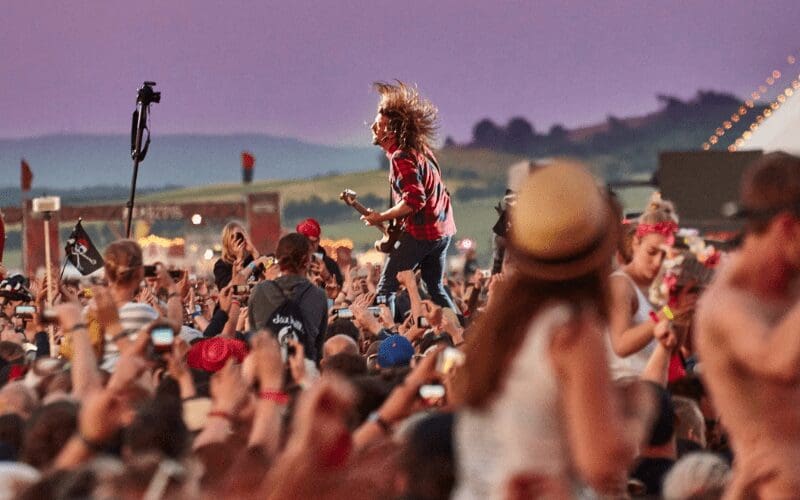
As a musician, your job is to entertain. You are there to perform to your audience and make sure they have a great time and enjoy your set. It might be a cliché but the fans come first. A particular gig comes to mind with regards to this.
We remember a punk rock band in a small club venue a few years ago. The crowd was definitely up for it and a mosh pit began. It got a little rough and someone in the audience fell over. The singer called the song to a halt and jumped off stage to make sure the girl who’d tripped was ok.
He then jumped back on stage and picked up the song where he left off – and the crowd loved it!
10 Concert Etiquette Rules For Gig-Goers
Now we have established the rules for performers, it is now time to turn towards the gig-goers.
1. Enjoy Yourself
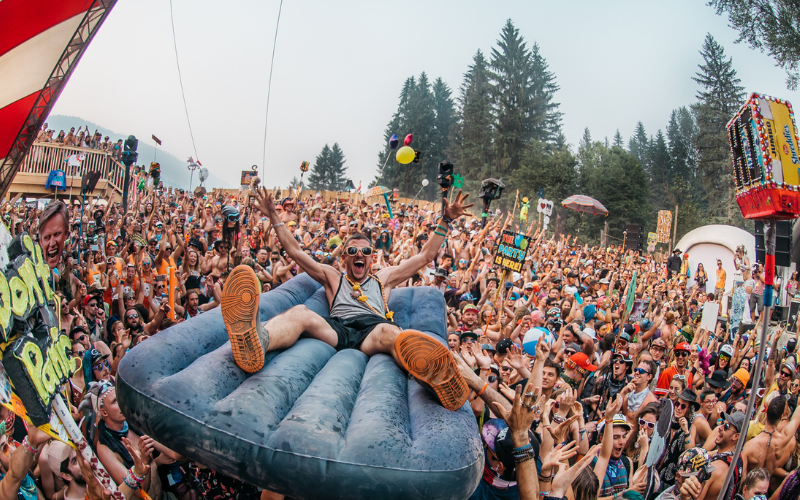
Yep, the #1 rule for concert goers is exactly the same as it is for performers – enjoy yourself. This is supposed to be a fun experience, so enjoy it! Have fun!
As a performer, there is nothing better than seeing a crowd having a blast and the positive energy gets stronger the more it is reinforced. So go with the intention of having a great night.
2. Respect Your Fellow Gig Goers

When researching this for this blog post, we came across a number of articles with rules for going to gigs and some of them read like a rule book that made live music seem like some kind of formal event. “Don’t talk”, “don’t sing”, “if you’re tall, stand at the back”. It honestly felt a little harsh to lay down all these rules for a bunch of people who just want to go out and have a good time.
How you behave at a rock gig is really up to you as long as you are respecting the people around you. If you’re singing along, that’s great! I love it!
But if you’re a drunken mess shouting a mangled version of the artist’s song into the face of a stranger, understandably that might not be the best experience for the other person!
It might be controversial, but if you’re tall I don’t think you should be banished to the back of the auditorium. But again, it comes back to respect. Pushing in front of someone shorter than you and standing directly in front of them is a little inconsiderate.
So if you’re tall, stand where you like, but try to be aware of those around you.
3. Photos Are Fine, But Leave The iPad At Home!
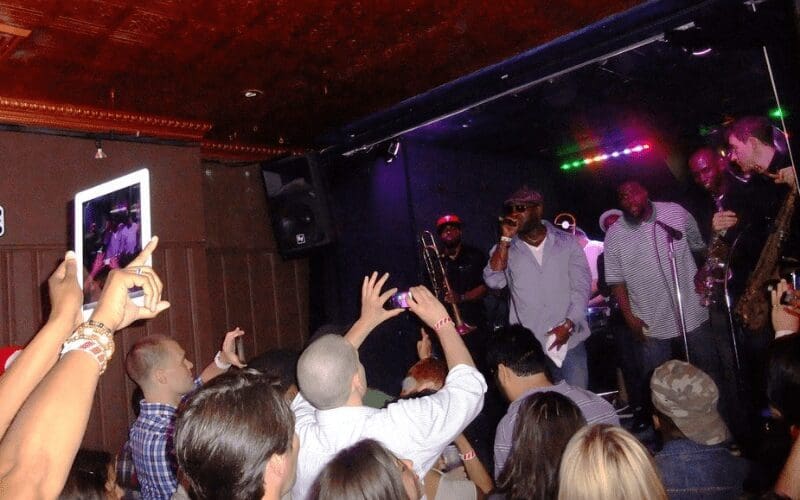
There’s no problem with people taking photos and filming parts of gigs on their phones. After all, why wouldn’t you want to relive some of those awesome memories?
But when someone is in front of you filming it on an iPad – it sometimes feels like you’ve paid for the knock-off bootleg footage of the concert rather than a ticket to the show. Leave the iPad at home, people!
4. Know When To Get To Your Seat
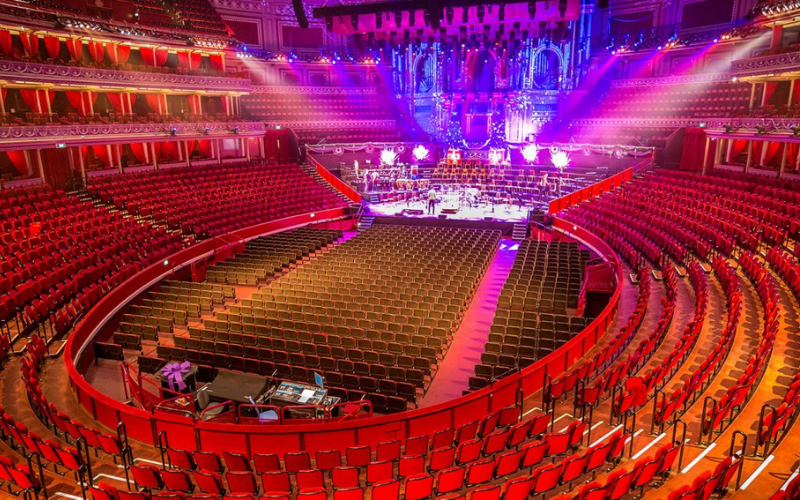
This is less of an issue at a rock concert and pop gigs. But, if you’re attending a classical or jazz performance in a more formal setting, this is one of the key concert etiquette rules. This regards when you should take your seat.
If you can’t be sat before the musicians start performing, don’t sweat it – being late happens! But in that instance, the best thing to do is to wait until after the musicians have finished playing the first piece and you can take your seat during the applause.
Be aware that at a classical performance, just because the musicians have stopped playing doesn’t mean that it’s time to clap, which brings us on to…
5. Clap At The Right Time
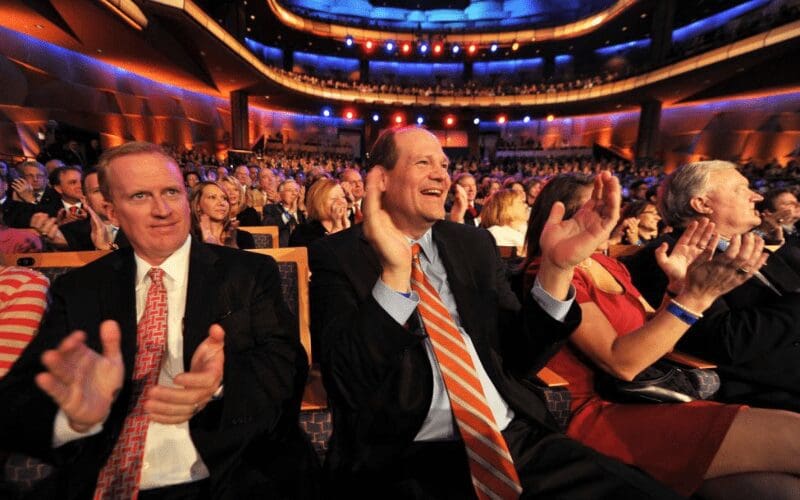
At an informal pop gig, you can clap and cheer pretty much whenever you want. But generally people clap and cheer after songs finish, after a particularly showy virtuosic instrumental solo or if prompted by the performer (Ey-Oh, Freddie).
But at classical music concerts, the pieces are played slightly differently and you will often get a few movements of a piece. The etiquette here is not to clap between the movements and only to applaud once all movements in a piece are complete.
If you’re unsure about how many movements are involved, the concert program will usually give an indication. You can also follow the lead of the conductor who will generally turn to face the audience when it’s time to applaud.
If all else fails, wait for others to start clapping and then join in. In this concert setting, it is seen as distracting and poor manners to clap between the movements. So our advice would be not to risk it!
6. Phone On Or Off?
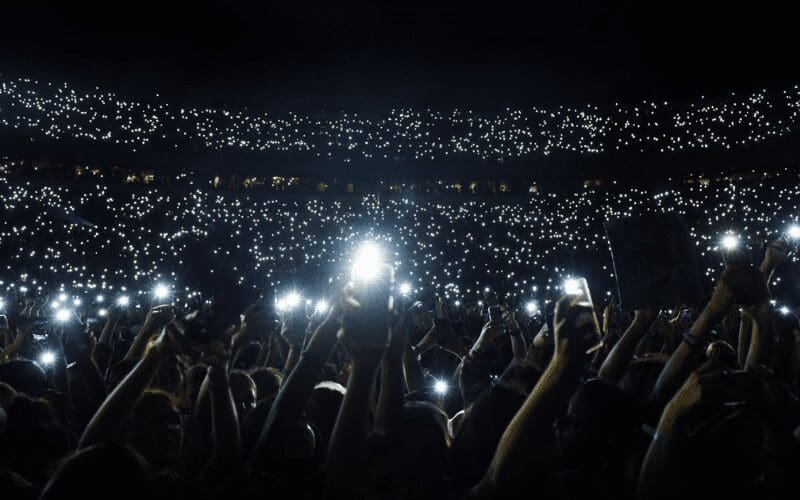
We all love our mobile phones and you kind of need them if you want to take pictures or film. But should you have it on? Well, it depends on the context. At a rock gig, if you take a call mid-performance, no one is going to know, least of all the performers on stage. And you’re probably not going to be able to hear.
If you’re engrossed in a text exchange during a set, it’s not a big deal. However, if you’re in a tiny café watching a singer-songwriter, phones ringing can be really distracting. Additionally, if you answer that call during the performance, you’re likely to end up attracting some pretty hostile looks!
In a more formal classical or musical theatre setting, phones are a bit of a no-no. Even if you’re just taking photos it can be seen as distracting so a good rule of thumb is that it’s best to keep that phone in your pocket.
7. Support Bands
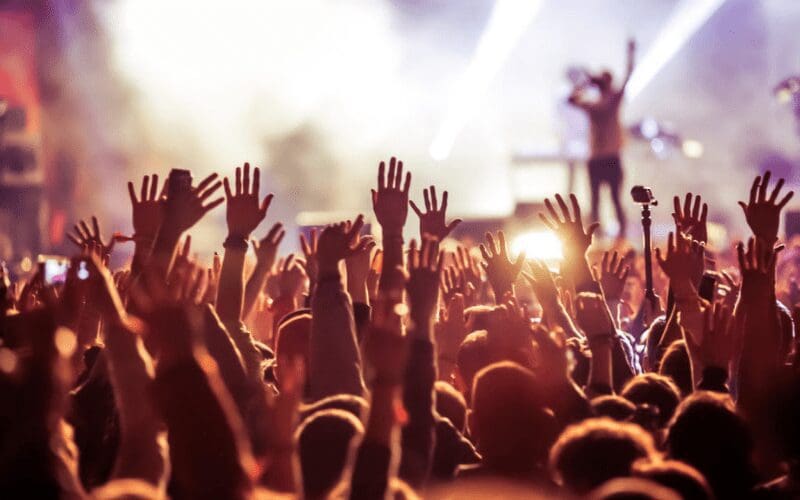
Being a musician can be tough – and support bands are often playing to half-filled venues for a pretty low wage in the hope of winning over some new fans.
So, if you’re at the venue in time to catch the support, do clap between the songs and encourage them.
8. Talking

This is another tricky issue – is it rude to talk during a gig? Again it kind of depends on the situation; if you’re in that small café and it’s a quiet setting, or if you’re at a classical performance, your conversation will generally be heard above the music.
You’ll be distracting the musicians from their performance and compromising the experience of other audience members. So best to keep the chats to the intervals.
At a full-on rock gig? It’s kind of up to you but generally, if you are going to talk over a full band it’s going to be more like shouting into your mate’s ear.
That’s no big deal but remember: people go to gigs to enjoy the music and so do you. So not only are you potentially missing out but you’re also distracting the person you’re talking to and maybe they’re missing out too. Let the music take you and experience the performance!
9. Singing
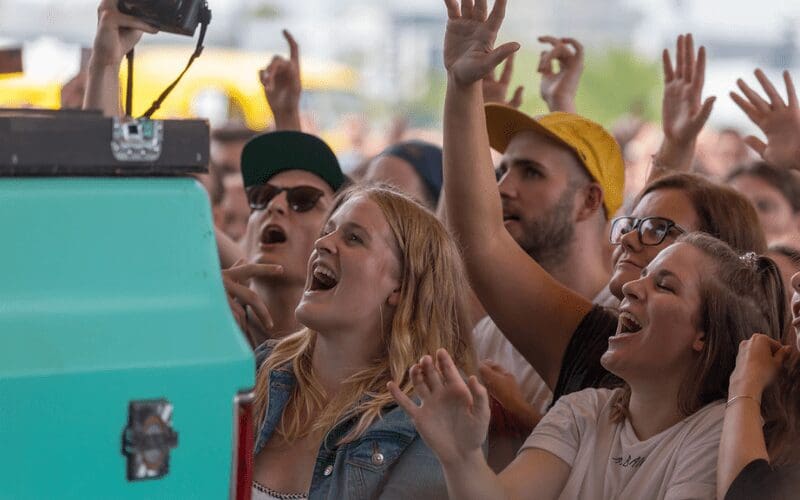
Some of the other articles on concert etiquette rules list singing as a cardinal sin. One even said “you’re not on American Idol”. We totally disagree with this sentiment. Music crosses every border and even the least musical of us can warble out a few lines of our favourite song.
If you want to sing along at a gig, you sing along! Be a part of the music!
If, however you are at a classic concert or if it’s a quiet setting and your singing is at a similar volume to the performer, I’d tone it down a little – again because you distract from the performance.
10. Merch
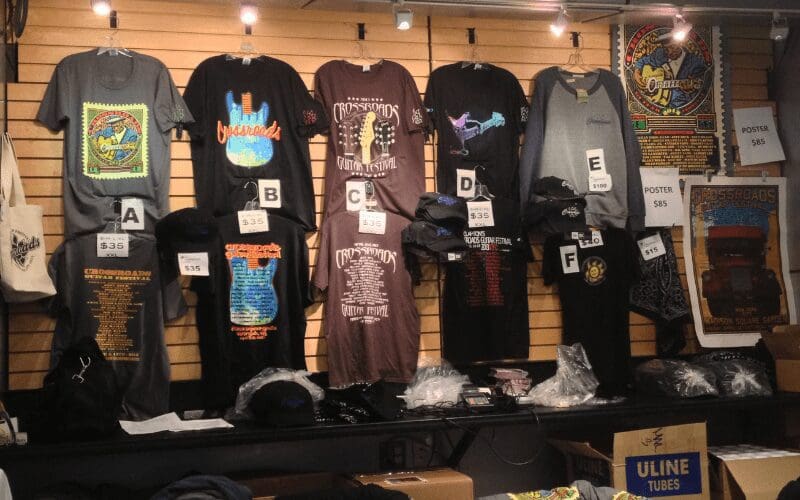
This is not so much one of the main concert etiquette rules as it is an observation. You definitely don’t have to buy merch. However, it is important to note that for bands (especially those in the early stages of their career), merch is a major source of income.
You’d be surprised how many big festivals don’t pay a lot of the younger bands a penny because the kudos of playing the festival is seen as payment enough. In these situations, buying a T-Shirt or CD of a band can be a real lifeline to those artists.
In doing so, you help them keep the show on the road and progress their career.
Now You Know All About Concert Etiquette!
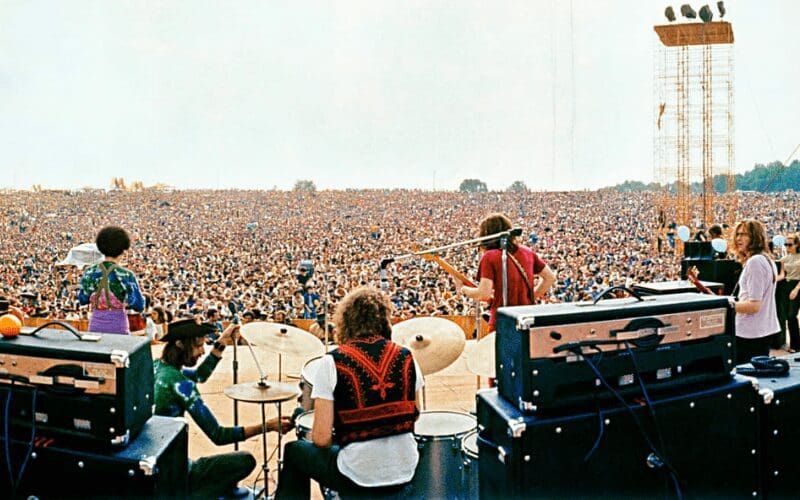
Live music is so important and seeing your favourite music performed live is a really special experience that you can’t even put into words. All of the concert etiquette rules here can be summarised into a couple of golden rules: Have Fun and Respect Others. That’s how everyone can enjoy themselves and get the most out of the experience!
We hope that you enjoyed this article! Do you have any tips for concert etiquette that we have missed? If you do, share them with us in the comment section below! Most importantly though, don’t forget to share this guide across your socials with your fellow performers and gig-goers and give us a tag @musicgateway!
Are You An Artist?
If you have songs that you want to share with the world – we want to help boost your career and get them noticed, including promoting your music and improving your streaming presence!
Also, check out our Sync opportunities page to get your music in TV and Film. Try it out for free today by signing up or clicking the button below!



